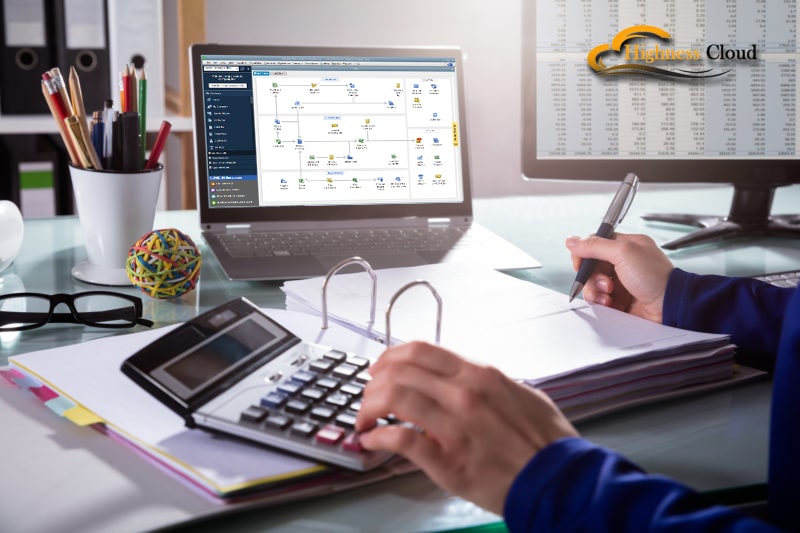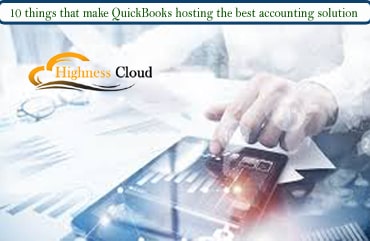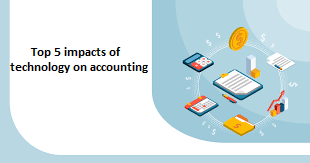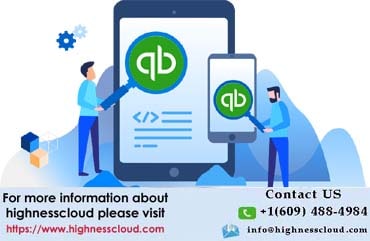Let’s delve into the cloud accounting realm and fathom the facts, figures, and future

In the last couple of years, cloud computing has grown by leaps and bounds. From the catapulting of its usage because of the influx of pandemics to the breakneck pace of the technological evolution, everything has acted as a catalyst in the growth of cloud computing.
It is because of cloud computing that we are slowly seeing many traditional practices either moving to the cloud platform and if not compatible, they are slowly dissipating. The fact that cloud computing is being accepted by industry domains with alacrity lies in its market size prediction- $1,620, 597 million by 2030.
And if you are not sure about the future and application of the cloud then the epiphany will take just a couple of seconds after going through the fact that currently, almost 94% of the enterprises are using cloud computing in one form or another. Although cloud computing application has become ubiquitous, it can be seen that it has left a profound effect on some specific industries, and one such industry is accounting.
So, let’s delve into the world of cloud accounting and go through some facts, and figures and understand its future.
Some interesting facts about cloud accounting that you must know
- The buzz that accountants are accepting cloud with alacrity is not a made-up fact since according to research, it has been seen that currently, around 67% of the accountants are ready to imbibe cloud.
- One of the most talked-about benefits of cloud accounting solutions like hosted QuickBooks-cost saving is not a marketing gimmick since studies prove that cloud accounting reduced labor costs by up to 50%.
- Even the future of cloud computing is as secure as the future of AI and Cryptocurrency since, by the end of 2023, the market size of cloud accounting is expected to reach $4.25 billion.
- Not only enterprises but even small businesses have joined the cloud computing race since, by the end of 2020, almost 78% of the small businesses will be using cloud technology.
- Apart from the businesses, accounting firms are also embracing the cloud solutions like QuickBooks hosting since the use of cloud technology is allowing them to add 5X the customers in comparison to those companies that are still relying on desktop-installed accounting software.
- There is even a research paper that has revealed that many specialists and managers are interested to invest in cloud accounting solutions like hosted QuickBooks and that might be the reason behind the influx in cloud accounting’s growth.
- Since, 2015, the Software-as-a-Service industry has grown from just $31.5 billion to a humongous figure of $171.9. This means that in just 7 years, the SaaS industry has grown by 5x its original valuation.
The 5 key accounting challenges that have acted as a springboard for cloud accounting
Accounting data confined to the office walls
The only issue people gripe about the traditional accounting solution is its high cost of maintenance but people usually forget about the bigger challenges- no remote accessibility. Even if you pass through the arduous task of setting up the conventional solution, the access will be limited to a single machine.
The herculean task of manual data maintenance
The amount of financial data a business might handle is endless and this poses a real challenge for the accountants. Accountants have to get involved in a slew of repetitive tasks and this blurs the ability of the accountant to glean and garner financial insights that could have done wonders for the firm.
No way to ward off the online perpetrators from the financial data
From bank account details to credit card information, every type of confidential data that one can think of is handled by the accounting department, and with the risk of security breach always hovering over their head, running a business can become a nightmare. To top it all is the outdated accounting solution that can’t deter the security risks from lurking in your system.
Risks not mentioned in the financial lexicon
The worst part about conventional accounting solutions is they are prone to disruption in the firm. From system errors to technical malfunctions, there are many issues not mentioned in the financial lexicon that can put a pause on your entire operation. And businesses being shut down for hours and days is the worst nightmare for every owner.
Conventional accounting solutions turning into money-guzzler
The maintenance cost of a traditional accounting solution can turn into an extravagant affair for any small and medium-sized business. Right from backup creation to upgradation, everything will add up to the bill of traditional accounting solution maintenance. But you won’t have to face such issues in cloud accounting solutions like QuickBooks cloud hosting Services.
What does the future of cloud accounting look like?
With the cloud accounting software market reaching $4.25 billion by 2023 and with companies witnessing a 15% year-over-year revenue growth just by switching to cloud accounting, the future of cloud accounting looks pretty safe, fruitful, and growing exponentially.
Even trends like small businesses narrowing down their focus on changing the account team to level the playing field with big businesses will play a crucial role in the growth of cloud accounting in the near future.
Soon, small businesses will have more focus on the accounting figure for making better decisions and predictions rather than doing it just for tax and compliance purposes. The flocking of data-driven accounting and the use of accounting for better decision-making is a clear sign that businesses are more interested in ameliorating their accounting than ever.
Cloud accounting is no more a new kid on the block with which the businesses and accounting firms are experimenting. It has become inherent in the accounting operation and by the look of things, it is clear that in the future, cloud accounting will become ubiquitous in every industry domain.
So, instead of just griping about the conventional cloud accounting solution, you must step up to the plate and switch to a cloud accounting solution as soon as possible.





